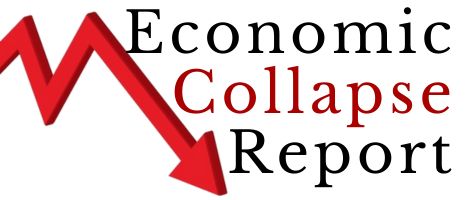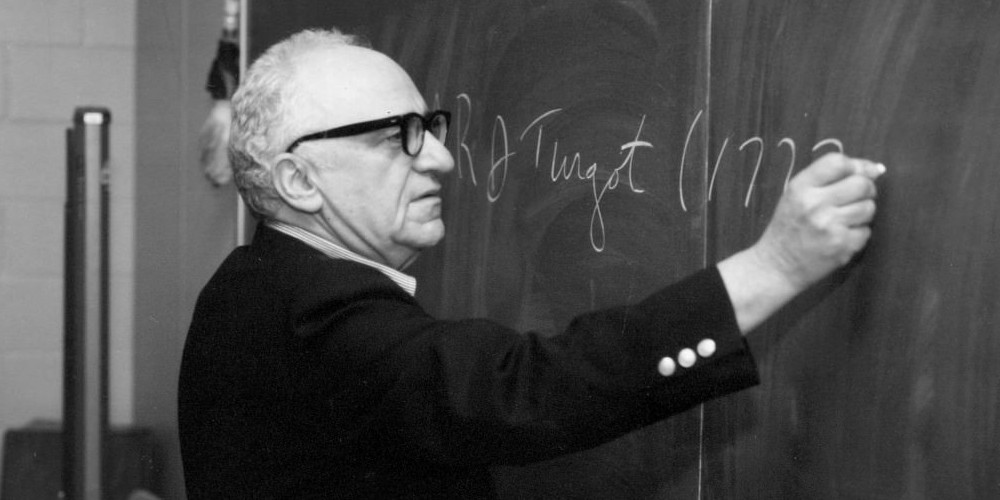(Lew Rockwell)—Many people oppose the free market because it leads to inequality of wealth and income. It is unfair, they say, that some people have vastly more money than others. Some defenders of the free market respond that these inequalities, while undesirable in themselves, make the poor better off than they would be otherwise, and so should be accepted. Another argument made by defenders of the free market is that restricting inequality would interfere liberty, so that, although inequality is bad, we have to put up with it.
While it is true that inequality makes the poor better off and that restricting inequality interferes with liberty, these are not the best arguments that defenders of the free market should use. They accept that inequality is bad, but we should reject this assumption. There is nothing bad about inequality.
People are unequal in every dimension of their being, including weight, height, muscle build, intelligence, and so on. This just the way the world is. Why should we try to change it? People who attempt this have a grudge against the world. They are not satisfied with the way God created it.
And of course they can’t succeed. As the great Murray Rothbard points out, absolute equality is impossible. No two places on earth, for example, offer precisely the same view.
If we shouldn’t defend the free market by arguing that it decreases equality, what should we do? Fortunately, there are many better arguments available. I’m going to list a number of them, but if you want more details, you should read Murray Rothbard’s Power and Market and Ludwig von Mises’s Human Action.
One of the best of these arguments is that the free market makes possible mutually beneficial gains from trade. If I have something that you want and you have something I want, we can make an exchange, so we are both better off. But what if our exchange makes someone else worse off? This question is a version of the “externalities” or “market failure” argument. The claim is that some of our activities, including trade, impose costs on others. If so, this indicates a failure to define property rights. Once we do so, the so-called “problem” dissolves.
This obviously raises another question. How do people acquire property rights? The best answer is given by Rothbard, further developed and extended by the great Hans-Hermann Hoppe. Everybody owns himself and, given that the earth starts out unowned, he can “mix his labor” with the land and thus acquire it.
Before leaving externalities aside, we should note another important argument. People who talk about externalities want the government to correct them, but what reason is there to think that the government will change things so that the supposedly “correct” amount is produced? There is every reason to think that the government will make matters worse.
There is an assumption that we have been making so far that should now be dropped. This assumption is that in deciding what sort of economic system to adopt, we have a choice. We can pick the free market, socialism, or some intermediate system that is a mixture of the free market and socialism. For any developed economy, this is not so, as Mises proved in his famous article “Economic Calculation in the Socialist Commonwealth” (1920), expanded into his great book Socialism. Mises proved that without free market prices, economic calculation is impossible. Entrepreneurs cannot tell whether their investments are profitable. So, they are unable to use their resources efficiently. If they cannot do this, the economy will collapse into chaos.
Further, there is no third system intermediate between the free market and socialism. Interference with the market fails to achieve the ostensible goals of its supporters. Minimum wage laws create unemployment. Price controls lead to shortages. Faced with failure, the interventionists must either return to the free market or intervene again, in an effort to remedy the defects of the previous intervention. If this is continued, there will be no free market left. The result will be full-scale socialism, which has already been shown to be impossible.
How did the socialists and interventionists respond to Mises’s conclusive demonstration that their schemes cannot work? They denied the existence of economic laws that restricted what they could do. As Mises says in Human Action, “It is a complete misunderstanding of the meaning of the debates concerning the essence, scope, and logical character of economics to dismiss them as the scholastic quibbling of pedantic professors. It is a widespread misconception that while pedants squandered useless talk about the most appropriate method of procedure, economics itself, indifferent to these idle disputes, went quietly on its way.
In the Methodenstreit between the Austrian economists and the Prussian Historical School, the self-styled ‘intellectual bodyguard of the House of Hohenzollern,’ and in the discussions between the school of John Bates Clark and American Institutionalism much more was at stake than the question of what kind of procedure was the most fruitful one.
The real issue was the epistemological foundations of the science of human action and its logical legitimacy. Starting from an epistemological system to which praxeological thinking was strange and from a logic which acknowledged as scientific–besides logic and mathematics–only the empirical natural sciences and history, many authors tried to deny the value and usefulness of economic theory. Historicism aimed at replacing it by economic history; positivism recommended the substitution of an illusory social science which should adopt the logical structure and pattern of Newtonian mechanics. Both these schools agreed in a radical rejection of all the achievements of economic thought. It was impossible for the economists to keep silent in the face of all these attacks.”
Thus, it’s the free market or nothing. We are fortunate that the only economic system is on that benefits everybody through the chance of making mutually advantageous exchanges.
This point leads to another argument we can use to defend the free market. In the free market, it’s to my advantage that others do well, because they can offer more goods and services to exchange. This will promote peace between nations. Why go to war with people who are making you better off?
Given the abundance of excellent arguments in favor of the free market, there is no need to use argument that accept the enemy’s premise that equality is a good thing. Let’s do everything that we can to support the genuine arguments in favor of the free market, as best expounded by Murray Rothbard and Ludwig von Mises.

It’s becoming increasingly clear that fiat currencies across the globe, including the U.S. Dollar, are under attack. Paper money is losing its value, translating into insane inflation and less value in our life’s savings.
Genesis Gold Group believes physical precious metals are an amazing option for those seeking to move their wealth or retirement to higher ground. Whether Central Bank Digital Currencies replace current fiat currencies or not, precious metals are poised to retain or even increase in value. This is why central banks and mega-asset managers like BlackRock are moving much of their holdings to precious metals.
As a Christian company, Genesis Gold Group has maintained a perfect 5 out of 5 rating with the Better Business Bureau. Their faith-driven values allow them to help Americans protect their life’s savings without the gimmicks used by most precious metals companies. Reach out to them today to see how they can streamline the rollover or transfer of your current and previous retirement accounts.
Kamala Harris Says the American Dream Is “Gone”
by Modernity News
During a pre recorded interview, Kamala Harris once again failed to deliver any substantive outline of her policies, primarily attacking Donald Trump’s outlook and his first term in office. At one point when speaking about the economy, Harris appeared to suggest, in stark contrast to Trump, that the American Dream…
Gold Price Forecasts Skyrocket Following Moves by China and the Fed
by Sponsored Post
With the Federal Reserve beginning what most expect to be a sustained easing cycle, momentum continues to rise for gold and silver. Values have been steadily rising and the newest forecasts point to even more gains down the road. At the end of September, BMO Capital Markets published updated commodity…
Taxes and Tariffs and Trade: Oh My! Trump’s Plan to Bolster the Economy
by Just The News
In a bid to build a broader coalition, former President Donald Trump has outlined a vision of tax cuts, import tariffs, and “reciprocal trade” to preserve and restore American industries. Since coming down the escalator of Trump Tower in 2015, the Republican standard bearer has espoused unconventional trade policies and…
Expert Testimony: Mass Immigration Under Biden-Harris Is Driving Up Rents for Americans
by Breitbart
The arrival of millions of foreign nationals, many of whom are illegal aliens, under President Joe Biden and Vice President Kamala Harris is helping to drive up rents for working- and middle-class Americans, an expert witness told Congress Wednesday. Center for Immigration Studies Director of Research Steven Camarota told the…
This Year Marks First Since 1958 That Us Held No Oil and Gas Lease Sales
by Just The News
This year will be the first year since 1958 that the Bureau of Ocean Energy Management held no offshore oil and gas lease sales. Energy expert Alex Epstein, author of “Fossil Future,” argued at a recent House Budget Committee hearing the United States’ record-high oil production is in spite of…
Kamala’s Devastating Middle Class Taxes
by Independent Sentinel
With the election coming up, the IRS plans to reduce our taxes for 2025. it’s a common tactic to make it seem like they won’t tax us into oblivion once they return to office. CBS News: Some Americans could see lower federal income taxes in 2025 due to an annual…
Congress Passes Stop-Gap Spending Bill After Failed Mike Johnson Gambit
by Breitbart
Congress on Wednesday passed legislation that would fund the government through nearly the end of December. The House and the Senate passed a stop-gap spending bill that would push the government spending deadline to December 20. The measure, otherwise known as a continuing resolution (CR), keeps federal spending the same….
A ‘Bipartisan’ Bar Tried to Open in DC, Then Libs Cried That an Elephant Image Was ‘Hurtful.’
by The National Pulse
A new bar in Washington, D.C., whose political theme focused on bipartisan agreement and debate, succumbed to partisan pressure before the establishment could even serve its first drink. Originally billed as Political Pattie’s, the bar was flooded with complaints by liberals who said the establishment’s logo—specifically the Republican Elephant—was offensive…
Newsom Signs Bill Requiring Janitors to Take $200 Sexual Harassment Training
by Just The News
California Gov. Gavin Newsom signed a bill requiring companies that hire janitors to make sure janitors take sexual assault training every other year, and pay $200 per participant for sessions with under 10 janitors present, and $8 for sessions with 10 or more janitors. The bill also requires the government…
Biden-Harris Regime Prepares Another $8 Billion in Military Aid for Ukraine During Zelensky’s Washington Visit
by The Gateway Pundit
The Biden-Harris regime is once again prioritizing foreign interests over the well-being of American citizens, with plans to announce an eye-watering $8 billion in military aid for Ukraine during Ukrainian President Volodymyr Zelensky’s visit to Washington. This massive giveaway comes as Americans continue to face economic hardships, skyrocketing inflation, and…
‘Economic Dystopia:’ Silicon Valley Tycoon Predicts AI Will Take Over 80% of All Work
by Breitbart
Vinod Khosla, legendary Silicon Valley investor and entrepreneur, has predicted that AI will replace the majority of work in most jobs, necessitating the implementation of universal basic income (UBI) to prevent economic instability and inequity. Fortune reports that in a recent blog post, Vinod Khosla, the billionaire co-founder of Sun…


